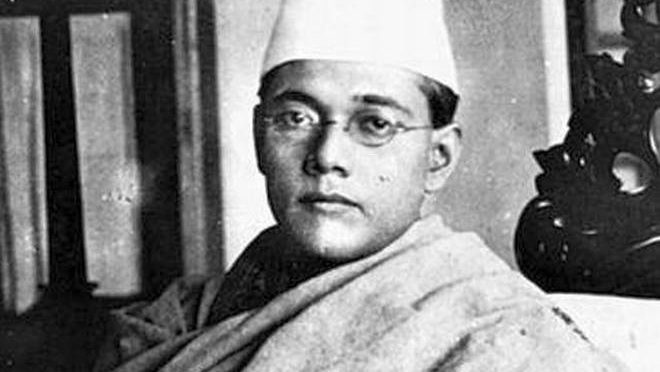Netaji Subhas Chandra Bose
Posted on : August 25, 2018Author : AGA Admin

“By freedom I mean all-round freedom, i.e. freedom for the individual as well as for the society; freedom for the rich as well as for the poor; freedom for men as well as for women; freedom for all individuals and for all classes.”
Subhas Chandra Bose was primarily a practical politician and not a political theorist – more essentially a fighter, rather than a framer. At present, it is proved that the problems and issues of his political thoughts cannot be based merely upon abstract theoretical formulations as the facts of life also serve as the foundation of modem political thoughts. What Bose wanted was a blending of Nationalism and Socialism, where Nationalism would not be aggressive, and Socialism would not lose the national perspective. Bose asserted that he had distinct and definite ideas on social, philosophical, economic and political problems. He wanted to amalgamate all the good elements of the East and of the West.
In his free and independent India, Subhas Chandra Bose had the aim of creating an egalitarian society in which all the members would enjoy almost equal economic benefits and social status and there would not be any distinction between men on account of accident of birth, parentage, caste and creed. He developed an ethical approach to life based on sacrifice, renunciation, self-abnegation and self sacrifice which is in a way, the core of a democratic way of life. These ethical and spiritual ideals contributed to his formulation of a political philosophy in consistence with Indian culture and civilisation. According to Bose, liberty broadly signified political, economic and social freedom and for him economic freedom was the essence of social and political freedom.
Subhas Chandra Bose bravely fought for India’s independence, but this independence was also an economic necessity for him. He said, “The problem of giving bread to our starving millions – the problem of clothing and educating them – the problem of improving the health and physique of the nation – all these problems cannot be solved so long as India remains in bondage.” Subhas Chandra Bose’s concept of Swaraj (Self-rule) was the concept of total and unconditional independence, a concept of socio-economic dimension and a concept of the nation’s economic development based on indigenous planning and development model.
Netaji started out in the Congress but disagreements with Mahatma Gandhi and Nehru over the nature of the Freedom struggle eventually led to his ouster from the party. He later built an army with which he attacked British India hoping to win freedom. Subhash Chandra was elected President of the Indian National Congress in 1938 ,he was again made its President in the following year. At this juncture he formed his own party the Forward Block in 1939 because of his differences with Mahatma Gandhi and other Congress leaders.
This narrative , of a martial and violent approach sits well with the right-wing who saw it as a more decisive and direct response to British rule than the slow but steady non-violent protests of Gandhi and the Congress party in their fight for Independence. However, Bose was a leftist but his notion of leftism was quite different from what is commonly understood by the term today. In particular, he was a leftist in the sense that he was an anti-imperialist and believed in attaining undiluted independence, not merely substance thereof. Thus, neither economics nor communism was central to Bose’s notion of leftism. In his own words, “In the present political phase of Indian life, leftism means anti-imperialism.” He described rightists as negation of leftists, as those “prepared for a deal with imperialism.’’
Bose was promised help in his armed struggle against the British by Germany. He travelled to Japan facing all possible dangers posed by the Second World War. He became the commander of the Indian National Army and freed the islands of Andaman and Nicobar and renamed them as Swaraj and Saheed Islands. “Delhi Chalo” (March Delhi) became the battle cry of the Indian National Army and they made steady headway across the Indian border of Manipur, however the bombing of Hiroshima and Nagasaki and the surrender of the Japanese army changed the whole course of events. Therefore, he decided to return to Tokyo to decide his further course of action, but unfortunately, his plane crashed near Taipei and he achieved martyrdom at the young age of 48 years.
While Netaji was in favour of modernity he was convinced that certain cultural and social aspects must be retained. He was also more radical in his approaches towards Indian independence which was reflected in his collaborations with Russia and Germany, and later with Japan , a move which met with opposition from some members of the Congress. However, his idea of “Azaadi” remained inspirational as the nationalist struggle developed and later when India emerged as an independent nation.
Srishti Maitra
Intern
Asia in Global Affairs





Wonderful writing… Real value addition and a more evolved thought process